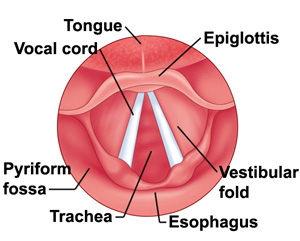John Mayer Be Good to Your Vocal Cords-AGAIN!

We originally published this story in September 2011, however yesterday it was announced that John Mayer would be suspending his tour “indefinitely.”
Apparently the vocal cord granuloma he had treated in October has regrown, and he is forced to rest his voice again.
As he wrote on his blog:
During rehearsal on Tuesday, it came to mind that I should see my throat doctor because something didn’t feel/sound right. I went in for a visit on Wednesday and a scope of my vocal cords revealed that the granuloma has grown back where it had mostly healed. This is bad news. Because of this, I have no choice but to take an indefinite break from live performing. Though there will be a day when all of this will be behind me, it will sideline me for a longer period of time than I care to have you count down.
I want to explain this a bit more in depth than I have in the past, because I know there’s some confusion as to what this condition is; a granuloma forms and continues to snowball because it’s in a spot where the vocal cords hit together and there’s no way to really give it a chance to heal without a good stretch of time and some pretty intensive treatment. In short, it’s one giant pain in the ass.
Somewhere in all of this is another surgery and a very long chemically-imposed period of silence, so I hope you’ll understand that I have to really pick that date carefully.
Update: October 24, 2011.
John Mayer underwent surgery to remove the vocal cord granuloma we wrote about in this story. According to Mayer:
I wanted to give you an update on the granuloma just above my vocal cord. I had surgery this afternoon to remove it and am now on complete vocal rest for a month or more. It’s been a very long process in waiting to see if time was an alternative to surgery, but even given two weeks’ voice rest (along with many other approaches), there was no change for the better.
Sept. 2011: Singer John Mayer has announced that he will be canceling two concerts and delaying his next album because of problems with his vocal cords. On his website, Mayer wrote:
After several months of going week to week monitoring and hoping to correct the condition, I am forced to cancel my upcoming singing engagements due to something next to my vocal cords called a granuloma.
…This is a temporary setback, though I’m not sure how long or short a period of time it will be. I’ve got the best doctors in the country looking after me and I will be singing and touring again as soon as I get the all clear. Until then I’ll be spending time writing and composing more music and kicking an empty soup can around the West Village.
What are the vocal cords?
 The vocal cords are two folds of smooth muscle within the voice box (larynx). The larynx lies at the top of the windpipe (trachea), just below the back of the tongue. Air passing through the vocal cords causes them to vibrate, and produce the sound of your voice.
The vocal cords are two folds of smooth muscle within the voice box (larynx). The larynx lies at the top of the windpipe (trachea), just below the back of the tongue. Air passing through the vocal cords causes them to vibrate, and produce the sound of your voice.
What are vocal cord granulomas?
Vocal abuse or misuse,such as excessive use of the voice when singing, talking, smoking,coughing, yelling, or inhaling irritants can cause abnormalities of the vocal cords, such as nodules, granulomas, polyps, or cysts. The difference between these abnormalities is mostly a function of what kind of tissue is involved.
A granuloma is a benign noncancerous growth which is usually found at the back of the vocal fold. There isn’t a lot of soft tissue there to act as a cushion, making it more prone to trauma as the vocal folds vibrate against each other during talking or singing.
 Other factors that contribute to the formation of granulomas include smoking, allergy, infections, postnasal drip, and chronic throat clearing and gastric reflux (GERD.
Other factors that contribute to the formation of granulomas include smoking, allergy, infections, postnasal drip, and chronic throat clearing and gastric reflux (GERD.
What are the symptoms of vocal cord granulomas?
The symptoms associated with a granuloma include:
- a sensation of something in the throat
- hoarseness
- voice breaks
- pain (sometimes felt in the ear)
The sensation that something is in the throat can be especially troublesome, as it makes you to want to clear your throat or cough. Unfortunately, this just worsens the irritation.
Occasionally, the granuloma can prevent the vocal cords from closing completely. This causes the voice to sound soft and breathy. Once again, trying to speak or sing louder only adds to the vocal trauma.
How do you treat vocal cord granulomas?
Most disorders of vocal abuse and misuse are reversible. The best treatment is to identify and eliminate the vocal behavior that created the voice disorder. In many cases, a brief period of voice therapy is helpful so that the individual can learn good vocal techniques such as proper breath support for speech or eliminating forceful voicing.
If the granulomas are related to gastric reflux, dietary changes and anti-reflux medications, such as Zantac or Prilosec can be helpful.
If you are suffering from any of these symptoms, see your doctor for an evaluation.
You can also read more about vocal cord problems by looking at the Resounding Health Casebook we’ve prepared on the subject.
Since John Mayer’s not going to be able to sing for a while, here’s a video to tide you over:



























0 comments